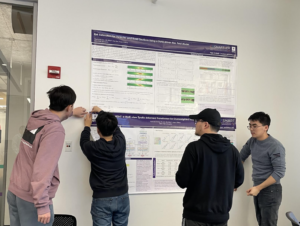LinkedIn LinkedIn LinkedIn Meet 2023-24’s Women in Transportation The Women...
Read MoreAs transportation technology continues to rapidly evolve and develop, New York City is rapidly approaching a world where autonomous vehicles are part and parcel of the urban mobility landscape. A complex city with an incredibly interdependent transportation system, NYC faces a particularly intricate adoption process.
How can New York City introduce autonomous vehicles while centering:
— Rudin Transpo Ctr (@NYURudin) August 4, 2022
✅ Safety
✅ Equity
✅ Sustainability
✅ Community Engagement
✅ Innovation
✅ Public Transit
Read our new report, AVs in NYC: A Policy Framework, to find out!https://t.co/Wju4DlAOET
“Autonomy’s impacts will be far-reaching, prompting significant social concerns like potential job displacement, equitable neighborhood access, and data privacy,” writes Sarah Kaufman. These impacts are complicated by the quickly-evolving technology: “Although AVs are regulated for safety and efficacy within the transportation realm, they are rarely evaluated from a policy perspective.”
To address this gap, the NYU Rudin Center for Transportation Policy and Management led a multi-stakeholder initiative in conjunction with NYU’s C2SMART, USDOT University Transportation Center. The team hosted three workshops in December 2021 addressing issues and opportunities in seven topic areas: Local Governance, Community Outreach, Integration with Public Transit, Equity, Accessibility, Safety and Data Privacy. Participants represented the public and private sectors, advocacy and civic organizations, and academia.
This work produced a policy framework to help city planners, legislators, and industry manage the introduce autonomous vehicles onto the roadway safely, securely, and with an eye toward equity and access.
Seven mobility policy principles are presented as a preliminary framework for approaching the wraparound policies concerning the introduction of autonomous vehicles to New York City:
Safety, and public trust in that safety, is paramount to the introduction of autonomous vehicles on city streets.
Serve all New Yorkers equitably, raising the voices of our diverse populations in developing, testing and using AVs to make them accessible to all.
Engage New York’s diverse communities, hearing out community goals and concerns while also promoting innovation and equity.
Shared-ride autonomous vehicles must coexist with public transportation, which continues to serve as the lifeblood of New York City.
New technologies introduced by AVs should foster increasingly intelligent interactions with the city.
Adoption of AVs must augment New York City’s ongoing sustainability efforts, including vehicle electrification, minimized vehicle miles traveled, and sharing rides.
Public-private partnerships are key to setting and achieving safety, equity and sustainability goals.
These policy principles are intended to establish cross-sector strategic partnerships to advance both public innovation and social tenets. By centering the city’s goals of equity, safety, and sustainability, this initiative aims to ensure that AVs sufficiently support and move New Yorkers.
Related Posts
6th Annual Women in Transportation Panel
March 11, 2024 To celebrate Women’s History Month, C2SMARTER, the...
Read MoreCUNY City Tech/NYU C2SMARTER Poster Presentation & Social
March 5, 2024 In early March, C2SMARTER’s NYU contingent hosted...
Read MoreStudent Learning Hub: Fireside Chat with Chris Wichman of Airsage
February 21, 2024 On Wednesday, February 21, C2SMARTER hosted a...
Read More



